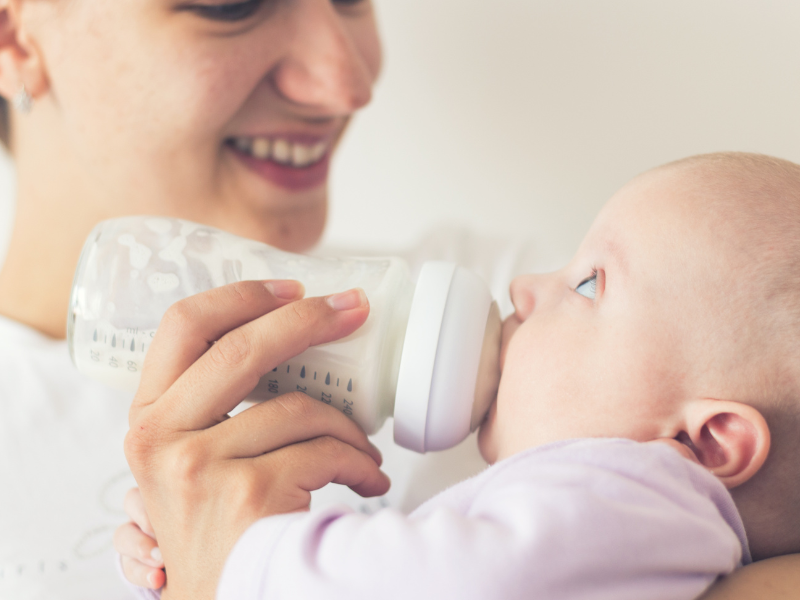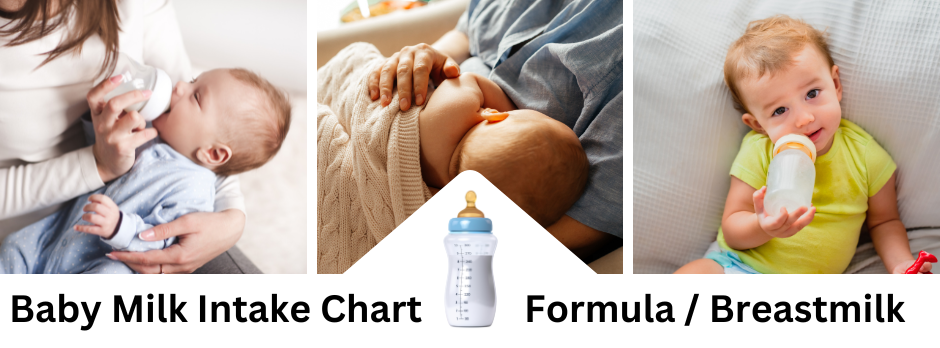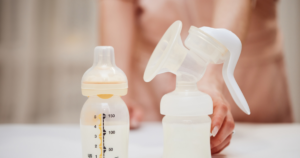-

·
Paced Bottle Feeding 101: What You Need to Know
Paced bottle feeding is a baby-led method that mimics breastfeeding by slowing milk flow and allowing breaks. It helps prevent overfeeding, supports breastfeeding, and encourages healthy feeding habits. Ideal for new moms using bottles, it promotes comfort, bonding, and a smoother transition between breast and bottle.
-

·
Can You Mix Formula and Breast Milk?
You may have some concerns about mixed feeding. But rest assured, if your baby is breastfeeding regularly and there are no medical reasons, then you don’t need to supplement with formula. Your breast milk should be enough! However, there may be situations where mixed feeding is a great solution, like if you have a low milk…
-

·
Milk Intake Chart in ml: How Much Should Baby Drink?
Need a baby milk intake chart in ml? We have created comprehensive milk intake charts, to guide you through the process of providing optimal nutrition for your little one, whether breastfeeding or formula feeding.

Breastfeeding Problems & Solutions
Tag: Bottle Feeding
 Learn about bottle feeding your baby safely and confidently. Find tips on formula selection, proper preparation, feeding techniques, and ensuring your baby gets the nutrition they need while creating a strong bond.
Learn about bottle feeding your baby safely and confidently. Find tips on formula selection, proper preparation, feeding techniques, and ensuring your baby gets the nutrition they need while creating a strong bond.